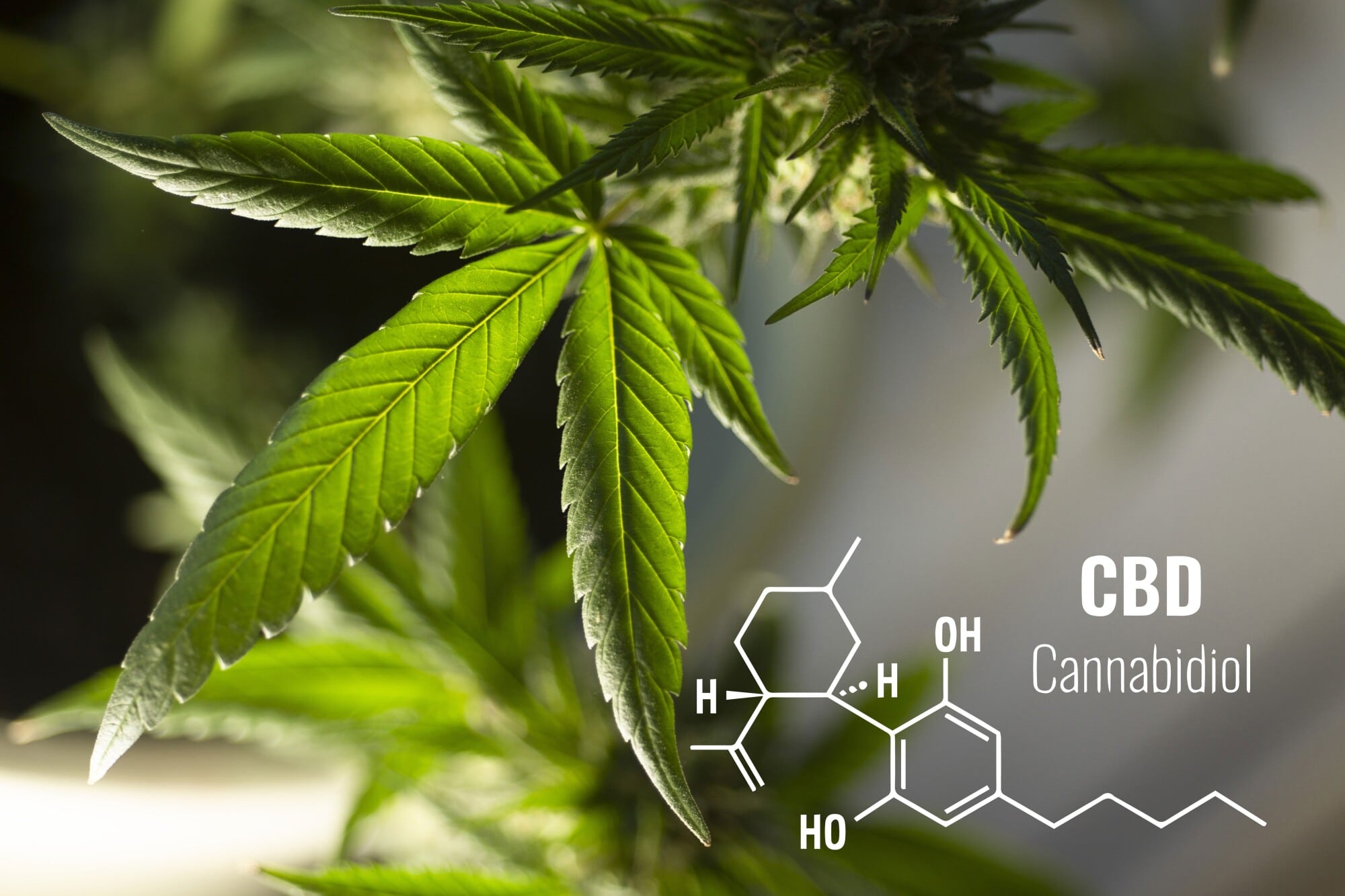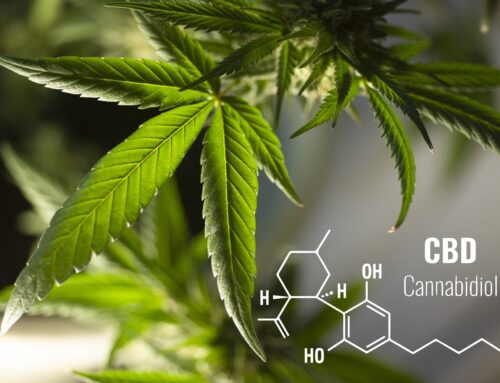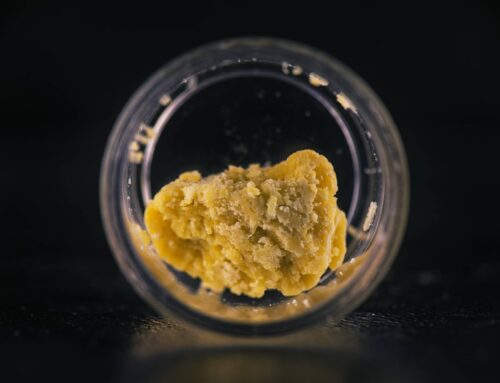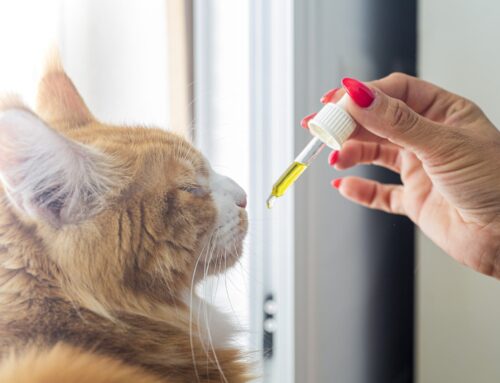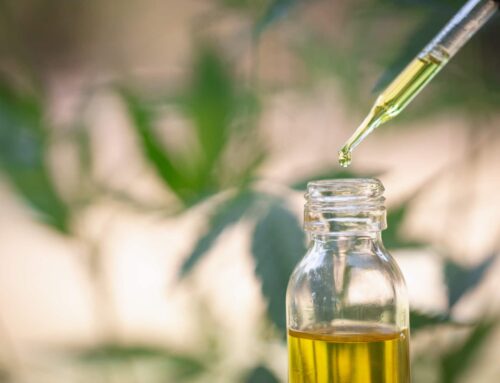When shopping for CBD products, it’s crucial to understand the difference between isolate, full spectrum, and broad spectrum CBD. That’s because some CBD products contain a tiny amount of THC, a compound associated with marijuana.
Though the amount of THC in CBD products is minimal (0.3% or less), some may desire THC-free products. After all, THC can accumulate in your body over time. But which CBD type is the right one for you?
To help you answer this question, let’s compare full spectrum CBD vs. broad spectrum CBD!
What Is CBD?
CBD, or cannabidiol, is a compound found in hemp plants. It’s a cannabinoid, one of about a hundred known chemicals that interact with the body’s endocannabinoid system.
Each cannabinoid produces differing effects. For example, THC, one of the most well-known and researched cannabinoids, can create a feeling of joy. However, THC is often considered an intoxicant, whereas CBD is not.
That’s because CBD has a very kind of effect on the body. Generally, CBD is thought to help individuals relax. It may help reduce muscle tension and assist in restful slumber.
The benefits of CBD are many. Consumer testimony is often overwhelmingly positive, and the medical and scientific communities have done quite a bit of research to find out the full effects.
What Are the Benefits of CBD Products?
There are several types of CBD products available to consumers. Each one provides unique potential benefits. For example, topical CBD products may help with pain relief and muscle relaxation.
Alternatively, CBD tinctures and edibles might relieve symptoms of stress, anxiety, or depression. Still, many of the purported benefits of CBD products aren’t backed by extensive research.
As such, CBD users should only purchase CBD products from reputable retailers and manufacturers. It’s also ideal to start with small quantities or dosages to prevent unwanted (but very mild) adverse side effects such as diarrhea and headaches.
Still, as more research is completed on cannabinoids, the full benefits of CBD may finally come to light. There is still quite a lot that we do understand about cannabinoids, including CBD.
What Are the Types of CBD?
CBD is a single type of cannabinoid found in hemp plants, but it’s often processed into three primary types of CBD. These three types are:
- Full Spectrum
- Broad Spectrum
- Isolate
The significant differences between these kinds of CBD come down to their THC and terpene contents. For example, full spectrum CBD might contain up to 0.3% THC but isolate CBD products contain zero THC.
Let’s explore both full spectrum and broad spectrum CBD types in greater detail to discover what they are, what they contain, and how they differ.
What Is Full Spectrum CBD?
Full spectrum CBD is a type of cannabidiol that contains multiple compounds and terpenes. As such, it’s potentially rich in antioxidants and cannabinoids. Some believe that the presence of these additional compounds is beneficial.
You can think of full spectrum CBD as the multivitamin of cannabidiol. Not only does it contain cannabidiol, but it also contains a wide variety of cannabinoids that may interact with one another, heightening their effect. This is called the ‘entourage effect’.
Just as with other types of CBD, full spectrum products are available in a wide variety of styles. There are full spectrum lotions, edibles, and oils available to interested shoppers.
Still, more research is required to confirm or deny this so-called “entourage effect”. Much of our current understanding comes from consumer testimonies and reports.
What Is Broad Spectrum CBD?
Broad spectrum CBD is very similar to full spectrum CBD, but with one significant difference: Broad spectrum products don’t contain any THC but it still retains the beneficial terpenes.
Broad spectrum CBD oils contain just as many beneficial cannabinoid compounds and terpenes as the full spectrum CBD.
So if you’re concerned about drug testing or THC absorption, you may want to choose broad spectrum CBD products.
Full Spectrum CBD Vs. Broad Spectrum CBD: Which Is Better?
Full spectrum CBD products contain more compounds than broad spectrum options. This could be a boon for individuals looking to enjoy the fullest advantages of using CBD. However, it might not be suitable for everyone.
After all, full spectrum CBD products can contain up to 0.3% THC. Over time, this cannabinoid can accumulate in the body’s fat cells. Individuals hoping to avoid THC consumption (i.e. if they have to drug test for employment) may not want to use full spectrum CBD.
Broad spectrum CBD, on the other hand, is always THC-free.
As such, a broad spectrum product could be ideal for those who want to experience CBD’s naturally occurring terpenes and compounds, but not the THC. The right option for you depends on your preferences and needs.
You could also choose isolate CBD products. These contain pure CBD and don’t contain any THC, terpenes, or other minor cannabinoids. CBD Isolate is often used in pet-friendly CBD products!
Enjoy the Benefits of CBD Today
Now that we’ve compared full spectrum CBD vs. broad spectrum CBD, and CBD Isolate you may have a better idea of which product could be right for you. But, of course, when choosing a CBD product, it’s always good to purchase from a knowledgeable supplier who can consult with you to meet your needs.
Would you like to learn more about Canadian CBD products? If so, please feel free to contact us today with any questions you may have.
